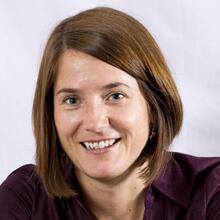 In his homily at yesterday’s stadium mass in Yaoundè, Cameroon, Pope Benedict XVI poignantly achieved something I have often struggled to do in undergraduate courses I teach on Catholic social thought or religion and politics; he also accomplished something the American media seems to struggle with as well when it comes to covering Catholicism. How can we underscore the fact that both the Catechism of the Roman Catholic Church and the Compendium of the Social Doctrine of the Church not only arise from the same tradition, but also can be held in our left and right hands (or vice versa) as we read the signs of the times and discern appropriate engagement in the world?
In his homily at yesterday’s stadium mass in Yaoundè, Cameroon, Pope Benedict XVI poignantly achieved something I have often struggled to do in undergraduate courses I teach on Catholic social thought or religion and politics; he also accomplished something the American media seems to struggle with as well when it comes to covering Catholicism. How can we underscore the fact that both the Catechism of the Roman Catholic Church and the Compendium of the Social Doctrine of the Church not only arise from the same tradition, but also can be held in our left and right hands (or vice versa) as we read the signs of the times and discern appropriate engagement in the world?
In the midst of the clamor concerning condoms and HIV/AIDS prevention, a complicated issue that at times disproportionately captures the public consciousness around both Africa and Roman Catholicism, the Pope announced the themes that ought to guide the deliberations of the second African Synod which will convene in October. The bishops are slated to discern “The Church in Africa in Service to Reconciliation, Justice and Peace.” Among the priorities of the gathering outlined in the Pope’s instrumentum laboris, The National Catholic Reporter lists human rights, the dignity of women, urbanization, crime, the death penalty and torture, the family, social infrastructure, and greed and corruption.
By raising these significant justice issues in the midst of the dialogue about the Church and HIV/AIDS, the Pope moves the Church’s public role in the African continent beyond an approach that emphasizes either the teachings of the Catechism or the Compendium and toward a praxis that incorporates the wisdom of both. By calling attention to the treatment of women and urbanization, for example, he implicitly challenges the “either we focus on life issues connected to disease prevention or we commit ourselves to life issues in the economy” stance and rather endorses an approach that acknowledges that “HIV/AIDS is both a result of both poor personal choices and structural injustices.” The Church has ample theological and ethical resources to address both in its teachings on sexuality (articulated in the Catechism) and justice (more fully laid out in the Compendium). A focus on the importance of family as well as social infrastructure moves the Church beyond a public presence defined either in terms of pelvic issues or global politics toward a praxis committed to the common good in which both individuals and whole societies are able to flourish. This agenda equally challenges the often ideological leanings of both conservative and progressive Catholics and our selective use of Church documents to support our respective positions. In suggesting that the laity have particular gifts of holiness which can transform African society, the Pope advocates for both ongoing personal conversion toward God as our ultimate good and public commitments to justice as our greatest social good. This weds piety and policy.
As he preached to the thousands gathered in that stadium yesterday, a group of people with whom Americans share much in common as we come to grips with the personal and structural underpinnings and impact of our own culture of greed and corruption, I envision the Pope prophetically holding both the Catechism and the Compendium in his hands. That’s pedagogical strategy I might try next semester.
Maureen O’Connell







